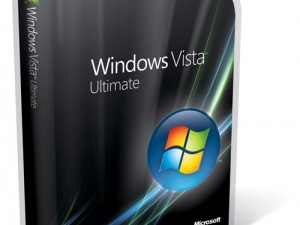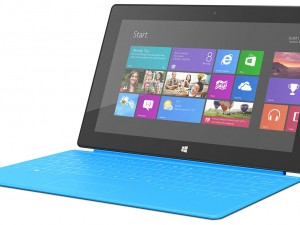After 14 years in charge, Steve Ballmer is stepping aside as CEO of Microsoft. He's been reviled as the worst CEO on the market, lampooned for his stage antics, and criticised as presiding over a series of market missteps. What a mess. How did we get here, and what now?
Some of that criticism is unfair. It's true Ballmer has presided over a 40% decline in Microsoft's share price, but he did inherit the throne at the peak of the dotcom bubble. The rest of the market doesn't look that great in comparison either: at the time of writing, Microsoft is down 40% from January 2000 when Ballmer became CEO, Cisco is down 55%, HP is down 60%, Oracle is down 70%, and Dell is down 74%. The Nasdaq as a whole is down 54%. Apple and Google clearly vastly outperform, but that's partly because Google wasn't listed until 2004 (it barely even existed in 2000) and Apple's share price was still in the doldrums in 2000. The iPod, which marked the start of its climb to the sun, wouldn't hit the market until the following year but it would be 2004 before the company's share price took off.
The market, increasingly impatient with Ballmer's inability to steer the Microsoft tanker, responded cheerfully, driving the share price up 8% after his announcement. That must have stung, but Ballmer's net worth went up a cool billion at the same time, so he'll probably get over it.
Unfortunately, even in context, Ballmer has still done pretty badly. Fast-forward the graph, and add in Apple and Google, and you're left with a picture of stunning market evolution in areas where Microsoft really should have dominated, but didn't. In some cases, Microsoft already had a leadership position, then dropped the ball quite spectacularly.
Gates dodged a bullet
Bill Gates probably stepped aside at exactly the right moment. Microsoft (and the rest of the industry) was riding high at the peak of the dotcom bubble. The company's products were on an upwards trajectory and gravity had yet to exert itself. Ballmer inherited a company with deepening internal political problems, in a rapidly changing technology landscape. If he made one mistake, it was trying to run Microsoft the same way, but what worked for the company in the 90s did not work in the noughties. His high-energy, blustering, rambunctious style was perfectly suited to the company's past, but not its future.
The continued success of Microsoft in areas where the market has not changed dramatically is only a further sign of Ballmer's obsolescence. Product lines which have performed well are largely those which needed little cultivation. Microsoft has faced no serious rivals in the enterprise market, and Ballmer has effectively won a race where he was the only one running. Fortunately, those have been highly profitable areas, but as the market continues to evolve, the schism - a literal generation gap - between Ballmer and the market is widening.
The last straw

Did he fall or was he pushed? We may never know. Certainly this announcement is earlier than Ballmer himself would have liked - he had previously said he wanted to retire when his children finished high school, which would be around 2017, and his leadership has come under increasing fire, capped by the $900 million write-down of tablet inventory after Microsoft's desperate attempts to catch up in the mobile arena saw it making a monumental strategic gaffe with Windows RT.
On the other hand, the company has just kicked off a major shake-up - a restructuring intended to completely reshape the company. That plan was initiated on Ballmer's watch, presumably with the agreement of the board, so it is possible that Ballmer himself realised he was the wrong man to head up the new Microsoft. In reality, it was probably a mutual consent - Ballmer's predecessor and long-time friend Bill Gates is still chairman, after all. Whoever made the final call, he'll be out inside a year.
Interestingly, a local boy is a possible replacement. Paul Maritz worked at Microsoft for 15 years heading up platforms strategy and has won industry recognition for his leadership in other firms, including a period as CEO of VMWare. Maritz was born in Zimbabwe and educated in SA. Another of the many possible replacements is Nokia CEO Stephen Elop (another ex-Microsoft exec), which would make sense given the reorganisation's primary focus on mobility.
Similarly aligned to that plan is Julie Larson-Green, strongly believed to be Ballmer's preferred successor, who now heads Microsoft's device division. A previous front-runner who is decidedly not in the running is Steven Sinofsky, who ran the Windows division but had a dramatic falling-out with Ballmer and left under a cloud at the end of 2012. In contrast to the share spike when Ballmer called it a day, Sinofsky's exit was greeted by a 3% drop in share price.
It's not about the products
Sinofsky's sudden departure drew attention back to the corporate culture at Microsoft - a culture which has been described as "dysfunctional", and that, more than any technical misstep, is Ballmer's greatest failing as CEO. The product gaffes from Windows Vista to Surface RT, the strategic own-goals like smartphones and tablet computing, are symptoms of the deeper malaise awaiting Ballmer's successor. That runs the gamut from the rash of departures at high level, through in-fighting and poisonous corporate politics, to the much-hated "stack ranking" performance management.
Ballmer will be remembered for the company's mistakes, but history may be unkind. The company's stock performance during his tenure is not the disaster many claim, and his exit might - just might - be marked by a strategic shake-up that could set the company back on track. He just won't be getting any credit for it.

Read on for some in-depth discussion of the key strategic missteps Microsoft made on Ballmer's watch.
Microsoft, under Steve Ballmer, made a series of strategic mistakes, but not all turned out to be complete disasters. Here are some highlights.
Smartphone disaster
Above all else, Ballmer will be remembered for giving away the smartphone market. A few short years ago, Windows CE and its successor Windows Mobile had crushed Palm and was well on its way to doing the same to RIM (now BlackBerry).
Microsoft, in short, was winning the smartphone war. In 2007, Windows Mobile was dominant, controlling 42% of the smartphone market.

Today, Microsoft is desperately nursing its 3% market share back to life with a Nokia transfusion, having been comprehensively trounced by Apple and Google. 2007, of course, is the year the iPhone launched, and the year Ballmer laughed off the iPhone as ridiculously expensive and unsuited for enterprise users. Money quote from 2007: "We're selling millions and millions of phones a year, Apple is selling zero."
That 42% market share was of a market many times smaller than today, but that can't disguise the fact that Microsoft snatched defeat from the jaws of victory. Ironically, it lost in almost exactly the same fashion that it had beaten Palm: via a sexier, more expensive, product which perfectly matched customers' desires.
Another quote from 2007: "There's no chance that the iPhone is going to get any significant market share." Oops.
Tablet calamity
If smartphones were a disaster, tablets were worse. Microsoft had a head start of over a decade in tablet computing - two decades if you count earlier attempts which were more akin to PDA spinoffs.
But, in 1999, it established a task team specifically to design the next generation of tablet computing. A device the New York Times described, presciently, as a "portable, wireless, keyboardless device would be about the size and weight of a writing tablet and be intended to serve most of a person's everyday computing and Net-surfing needs".
Dick Brass headed up that team, and would leave bitterly disappointed 10 years later, describing Microsoft as "dysfunctional" and "failing". Among Brass's criticisms: that all the pieces were there to deliver a tablet computer ahead of Apple, but internal bickering torpedoed the project.
Ballmer inherited a company with deepening internal political problems, in a rapidly changing technology landscape.
So it was that Microsoft introduced XP Touch Edition in 2002, running on what were basically laptops with swivelling screens. After that it singularly failed to innovate and was completely blindsided by the iPad despite having a head start, a prototype of a similar product, and clear warning (in the iPhone) of what users actually wanted from a touch interface.

Windows 8 (hold that thought) was viewed by many analysts to be Microsoft's last chance to turn things around. Ovum's Richard Edwards said if the OS failed, it would be "game over" for the Windows PC. And mobile devices were a crucial part of the Windows 8 strategy, with Microsoft betting heavily on delivering an OS capable of clawing back market share (or indeed relevance) in tablets and smartphones. So important that Microsoft risked alienating its entire OEM base to build its own Surface product, complete with the disastrous Windows 8 RT. The news that Microsoft would take a $900 million loss writing down tablet inventory came the quarter before the announcement of Ballmer's retirement.
Windows tablets remain critical to the success of Microsoft - among the top tasks for Ballmer's successor will be avoiding that ominous "game over" by bringing a competitive mobile strategy to market, and establishing a base to fight back against Apple and Google. In fairness to Ballmer, the sweeping reorganisation of the company he announced is intended to achieve just that - there is a plan already in place, with the approval of the board.
OS pains
When Ballmer took over the reins, Microsoft was just days from shipping Windows 2000. Later that year, the reviled Windows ME would hit the streets, and fortunately XP would land a year later, in 2001, to save the company's blushes. XP, although it did have teething problems and took two service packs to really mature, was a triumph. It was more stable, more secure, and better supported than anything Microsoft had offered desktop users before. Just as well, because its successor would be train wreck.

With XP doing well, and the server side of the business getting better and better, Ballmer's Microsoft took the opportunity to overhaul the operating system from the ground up. The next version was codenamed "Longhorn", with work starting mid-2001. Longhorn would include, among other broad architectural changes, a completely new database-oriented file system (WinFS) and a security framework (Palladium), along with a major visual refresh.
By 2004, the project was badly behind schedule, many of the features were incomplete, and the strategy was adrift. Senior MS exec Jim Allchin told Gates (still on board as chairman and chief software architect at the time) bluntly "It's not going to work" and calling for the project to be reset. The timing couldn't have been worse: Apple and Google promptly launched Mac OSX Tiger (with desktop search capability) and Google Desktop Search, both delivering capabilities Microsoft was in the process of surrendering. But reset it they did, in August 2004, and Ballmer has described the Vista reset as a low point of Microsoft under his tenure.
Above all else, Ballmer will be remembered for giving away the smartphone market.
Finally, late in 2006, years late and with many of the advanced features watered down or removed entirely, Windows Vista was released, only to face a storm of criticism, and XP would remain more popular with many users, particularly enterprise users.
Windows 7, more happily, got a lot right. Shipped on time, brought in new features, and finally gave the hold-outs a way forward from XP, since that was rapidly approaching end-of-life. Windows 7 is looking like a spiritual successor to Windows XP, which is good for users, but possibly bad for Windows 8. The latter is far from as disastrous as Vista, but similarly has to compete against a stable and popular incumbent.
That shouldn't matter - an OS licence is money in the bank to Microsoft - but the success of Windows 8 is vitally important, because it extends from desktops to mobile devices. Microsoft wants - needs - users to want a consistent Windows environment across devices, not a mash-up of Windows 7 on a desktop, iOS on a tablet and Android on a phone.
Music to no-one's ears
In 2006, stung by the success of the iPod and the iTunes Store, Microsoft introduced the Zune music player, and the Zune Marketplace. Too little, too late - the device failed to get out of single-digit market share and had launched as users were beginning to transition to smartphones anyway. After five years of toil, Microsoft finally pulled the plug on the Zune in 2011. The music marketplace survived, now repositioned as Xbox Music and the Windows Phone Store.
Another unhappy saga in Microsoft's music forays was MSN Music, and its PlaysForSure certification. In 2006, MSN Music closed shop, redirecting people to the Zune store. But in 2008, MSN Music's DRM servers were deactivated, leaving consumers unable to play their purchased content (the Zune was not PlaysForSure certified).
Game on
Microsoft's foray into console gaming has taken place entirely under Ballmer's reign as CEO, and been much more successful. Launching in 2001, the first generation Xbox struggled to gain traction against Sony's dominant PlayStation 2, which had a huge portfolio of titles and tremendous market penetration. But if any division shows signs of Ballmer's dogged commitment to long-term strategy, it's gaming - Microsoft stuck it out and did much better with the Xbox 360.
Gates started the Internet rot at Microsoft - under his command, the company missed the start of the Internet generation and had to play catch up.
Despite backing the wrong horse in the HD-DVD vs Blu-ray race, the Xbox 360 surged to a leadership position against the PS3. Not only did that establish Microsoft as a strong player in gaming, the long-term goal of embedding Microsoft in the living room began to bear fruit. The launch of the latest addition to the family, the Xbox One, focused heavily on media, not gaming. In motion-capture gaming, Microsoft and Sony were both taken by surprise by the success of Nintendo's Wii, but Microsoft stepped up with the Kinect, comprehensively besting Sony.
And that should be that, if Microsoft hadn't done its level best to throw it all away. The Xbox One launch managed to roll up a laundry list of everything users didn't want to see in consoles, such as mandatory Internet connections and bans on second-hand games. Sony pounced, scoring point after point for its upcoming PS4. Microsoft hastily backed down on some points, so it's possible Ballmer will close out his Xbox chapter on a happy note, instead of the cliff-hanger disaster it was shaping up for.
Xbox, it's worth noting, still hasn't paid for itself. The console division is profitable now, but the huge early investments leave it still in the red. But give the company credit - the strategy is long term, and working.
Interwhat?
Gates started the Internet rot at Microsoft - under his command, the company missed the start of the Internet generation and had to play catch up. And when it did, it caught up so aggressively that it assassinated Netscape and found itself on the wrong end of a monopoly ruling, but that is another story, with a relevant footnote: by the time Ballmer became CEO, Microsoft had stomped its way to 95%+ market share in Web browsers, then sat back and allowed first Firefox, and then Google Chrome, to establish footholds, which now sees IE in second place, and only just second place at that.
Microsoft SA leadership in the Ballmer era:
1998-2002 Mark Hill
2002-2006 Gordon Frazer
2006-2008 Pfungwa Serima
2009-present Mteto Nyati
Long before Ballmer ever came to power, Gates had realised how powerful the Internet would be, and circulated a company memo, which proved eerily prescient. He describes spending time online and not encountering any Microsoft technology. He outlines the possibility of lightweight consumption devices, which obviate the need for a PC. He explains how much easier it is to find information online than on Microsoft's own corporate network (and the memo, from 1995, predates Google AND Wikipedia, but was contemporary with Microsoft's Encarta digital encyclopaedia), and he points out the possibilities of online advertising. Keen insight, yet Microsoft managed to capitalise on exactly zero of those points, coming late to the party in every one.
Ballmer merely continued the tradition. Live Search was desperately late to market in 2006 ("Google" was already in the Oxford English dictionary by then) and the company has had to fight a ferocious rearguard action, forging deals with Facebook, Yahoo (though that's not going so well) and others, for what is still a minority market share. Live Search, now renamed Bing, is widely regarded as a good search product, but it is still firmly behind and now fighting the combined ecosystem of Google and Android.
Online advertising? Google, already ahead in online advertising, outflanked Ballmer and Microsoft by acquiring DoubleClick in 2007, putting Microsoft even more deeply in a strategic hole. The list goes on, Microsoft missing one boat after another.
Play nice
The brutal embrace-extend-extinguish metaphor of Gates' time at the helm didn't translate well into the new millennium. Ballmer's declaration that "Linux is a cancer", the company's funding of SCO's ill-fated patent lawsuit against IBM and Novell, and his brash dismissal of the iPhone have come to be regarded as symptoms of a leader who refuses to acknowledge that the world is changing around him. Microsoft's dogmatic one-track mindedness left it unable to respond to new opportunities.
However, the end of Ballmer's tenure has seen strategic realignment. A more humble Microsoft is now firmly behind, and focusing on delivering what the market wants, rather than trying to force the market into its mould.
Ballmer may have woken up late, but some of the disasters he is blamed for have, in many ways, been strategically addressed in the last couple of years. IE, Bing, Windows, the cloud... these are all areas where Microsoft had an edge, lost it, fell behind and is now executing on a strategy and showing positive signs.
Whether Ballmer's successor will be able to continue to turn the ship is one question. Whether the new CEO will be able to create new opportunities or take advantage of market shifts in time to lead, is a much tougher one. Microsoft needs a Steve Jobs, but it's likely to get a Lou Gerstner.
Share